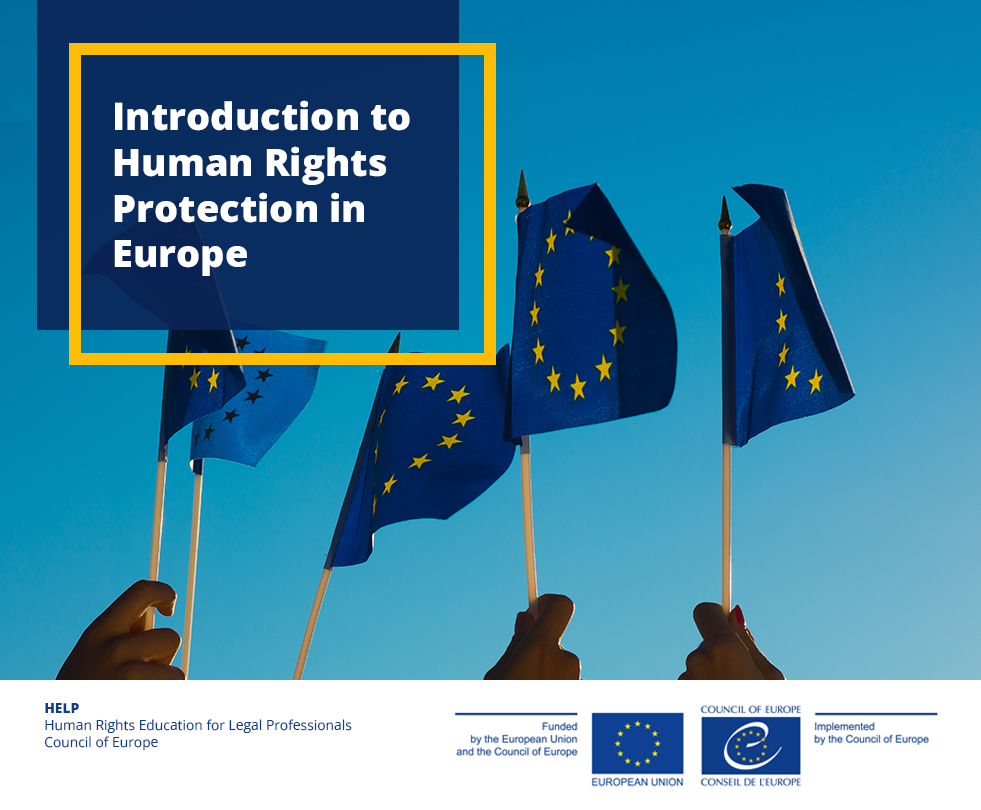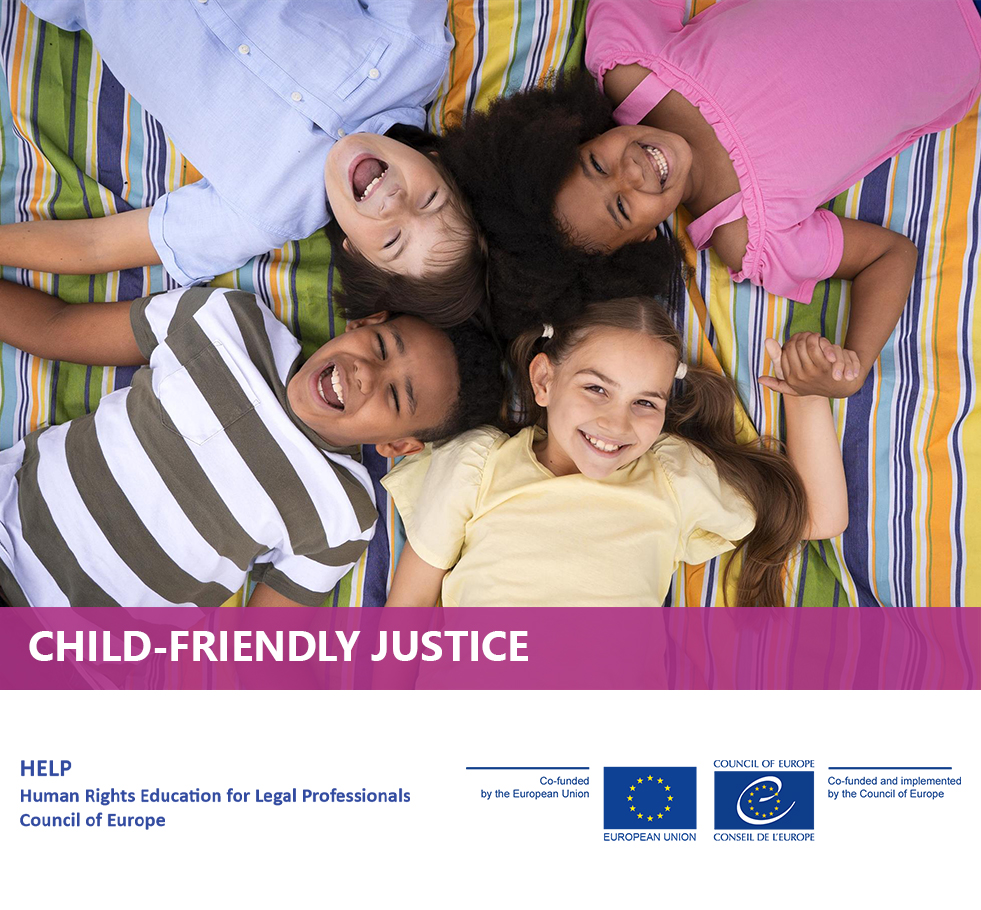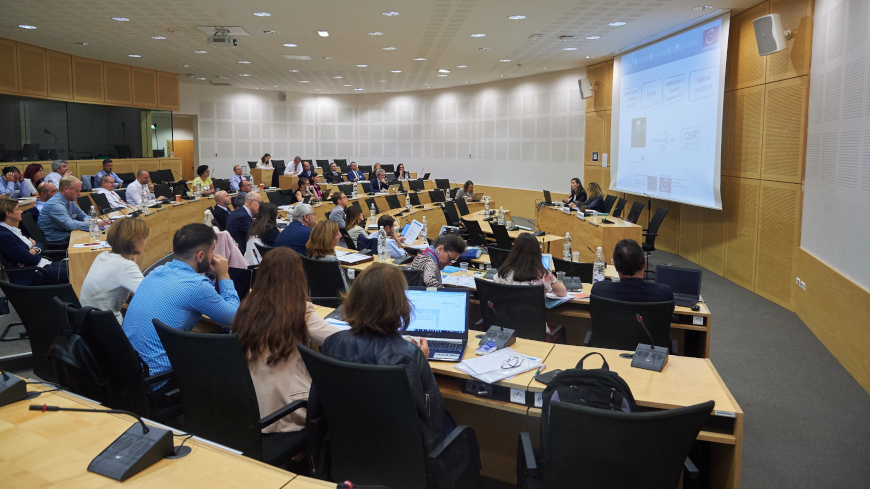45 judges, prosecutors, prison and probation staff meet in Strasbourg for the HELP Seminar on Radicalisation Prevention and the cross-border launch of the HELP course on Gathering and Use of Evidence in Counter-terrorism Cases. The joint event, organised under the EU-Council of Europe projects “HELP Radicalisation Prevention” and “HELP in the EU” was held in Strasbourg on 23-24 September 2019.
Participants got familiarised with the Human Rights Education for Legal Professionals (HELP) Programme of the Council of Europe and its e-learning platform containing 33 online courses.
The Seminar started with an opening speech by Eva Pastrana, Head of the HELP Programme. Eva Massa Arranz, coodinator of the EU-Council of Europe project “HELP Radicalisation Prevention”, presented the project results and underlined the main achievements in terms of training of justice professionals targeted by the course on radicalisation prevention developed under this two-year project, which comes to an end on 30 September 2019. The morning continued with a round table with the national tutors who conducted the course for over 300 participants (judges, prosecutors, prison and probation staff from 12 EU member states).
Stefano Piedimonte Bodini, Head of the Research and Library Division at the European Court of Human Rigths, gave a comprehensive overview of the European Court of Human Rights case law related to terrorism, highlighting the specific human rights that are most frequently affected. Donche Boshkovski, project coordinator in the Criminal Law Cooperation Unit, and Ilina Taneva, Head of the Penological Cooperation Unit, Criminal Law Division, presented the work of the Council of Europe related to prevention of radicalisation, including an analysis of relevant instruments (Guidelines and Handbook for prison and probation services regarding radicalisation and violent extremism) and projects (i.e. “Supporting reintegration of violent and extremist prisoners in Bosnia and Herzegovina” and “Structured sentence management for violent and extremist prisoners in Bosnia and Herzegovina; Counter Terrorism Strategy 2018–2022; Managing of rehabilitation of Violent Extremists”).
Nick Hammond, Isabelle Storme and Roisin Mulgrew introduced the participants to the new module on Managing Foreign National Prisoners, developed by Europris (European Organisation of Prison and Correctional Services) together with the HELP Programme. This module will soon be available on the Council of Europe HELP e-learning platform in six European languages, including English, French, German, Greek, Italian and Spanish.
The first day ended with a presentation on counter-narratives given by Ajmal Masroor, Imam, author and broadcaster, who shared his experience in dealing with radicalised individuals (mainly youngsters).
The second day focused on the launch of the HELP course on Gathering and Use of Evidence in Counter Terrorism Cases, under the EU-Council of Europe “HELP in the EU” Project, in which some 20 judges and prosecutors from 9 EU member states were enrolled.
Ana-Maria Telbis, coordinator of the EU-Council of Europe project “HELP in the EU”, presented the HELP Programme and the project and introduced the participants to the HELP online course on Gathering and Use of Evidence in Counter Terrorism Cases.
Participants were introduced to the Council of Europe HELP e-learning platform and to the catalogue of courses, with a presentation of the courses relevant for the topic given by Ana Medarska-Lazova, project coordinator in the HELP Programme, such as the HELP course on Prohibition of Ill Treatment and the newly published HELP course on CPT Standards.
Giulia Lucchese from the Counter-Terrorism Unit of the Council of Europe presented the work carried out by the Council of Europe in this field and the relevant mechanisms and standards, including the aim and relevant list of activities set out in the Counter-Terrorism Strategy 2018-2022.
Participants met the tutors who will accompany them in the implementation of the course for the following 3 months, namely Ana Salinas de Frias, university professor in Malaga and course coordinator and Federico di Salvo, lawyer in Florence and former lawyer at the European Court of Human Rights. They explained to participants how the course will be implemented and also pinpointed some practical challenges in the field of evidence gathering in counter terrorism cases, for participants to reflect upon and follow up in their exchanges during the course. Participants also had the possibility to share their expectations on the course and exchange ideas with their colleagues. Following the launch event, all participants were enrolled on the course page and will go through the online course in the coming 3 months. The participants who successfully complete the course will receive HELP certificates issued by the Council of Europe.
The HELP course on Gathering and Use of Evidence in Counter Terrorism Cases focuses on existing international human rights standards on the use of traditional and special investigation techniques and the role of Judges and Prosecutors in applying them in the context of terrorism related cases. It aims and highlighting the fair trial guarantees and procedural safeguards to be respected in evidence gathering, as well as the role of international cooperation in the recognition and use of evidence across jurisdictions. It comprises both Council of Europe and EU standards and case law.






